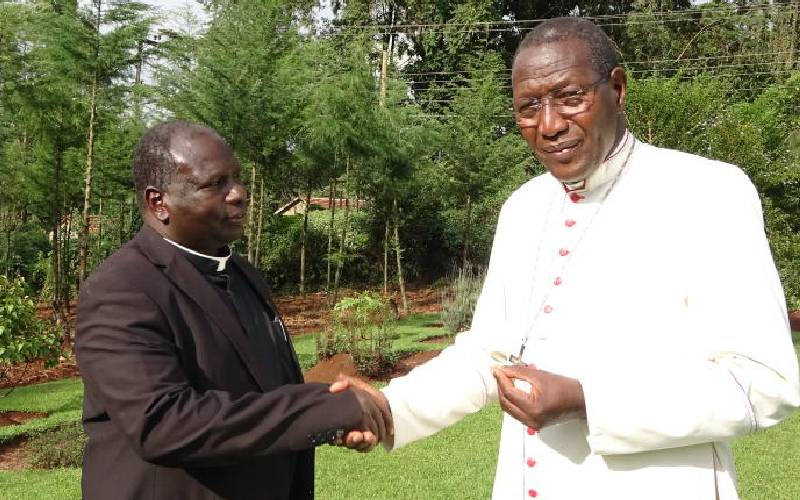×
The Standard e-Paper
Join Thousands Daily

Tergat Catholic Parish Priest Fr Ambrose Kimutai (left) is in the eye of a storm for publicly endorsing former Kenya National Union of Teachers (Knut) Secretary-General Wilson Sossion for the Bomet senatorial seat. [Nikko Tanui]
A Bomet Catholic priest is in the eye of a storm for publicly endorsing former Kenya National Union of Teachers (Knut) Secretary-General Wilson Sossion for the Bomet senatorial seat.